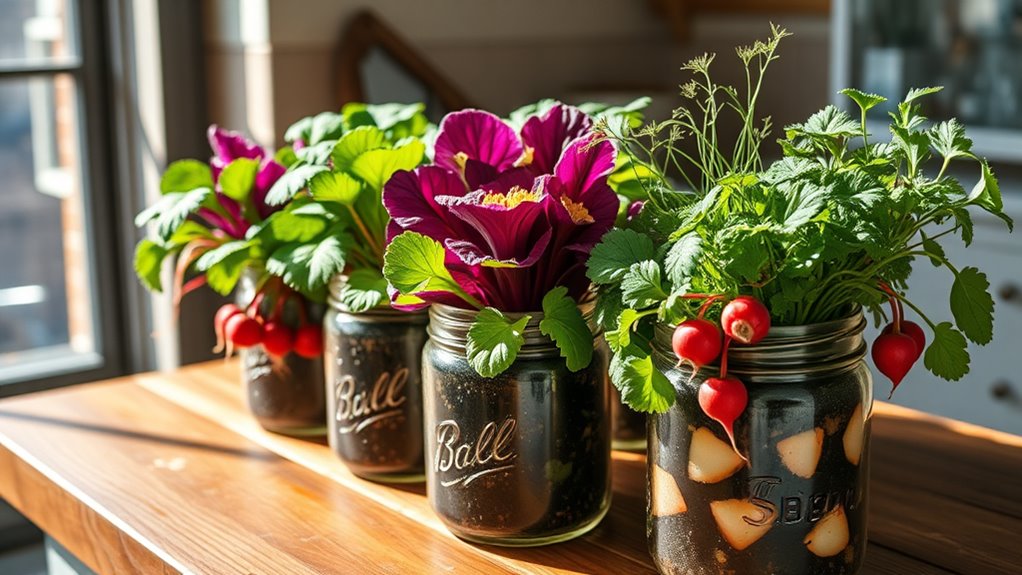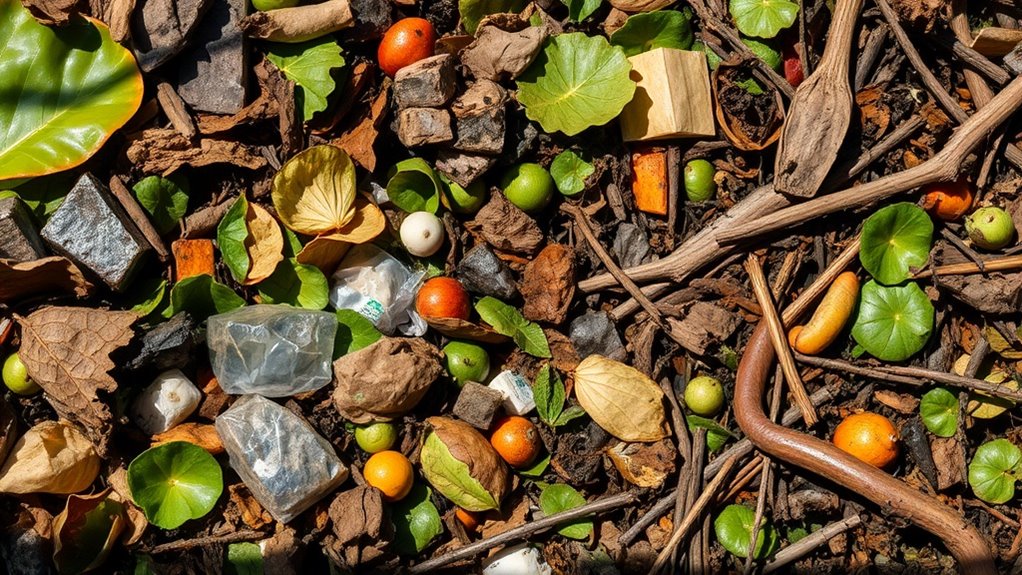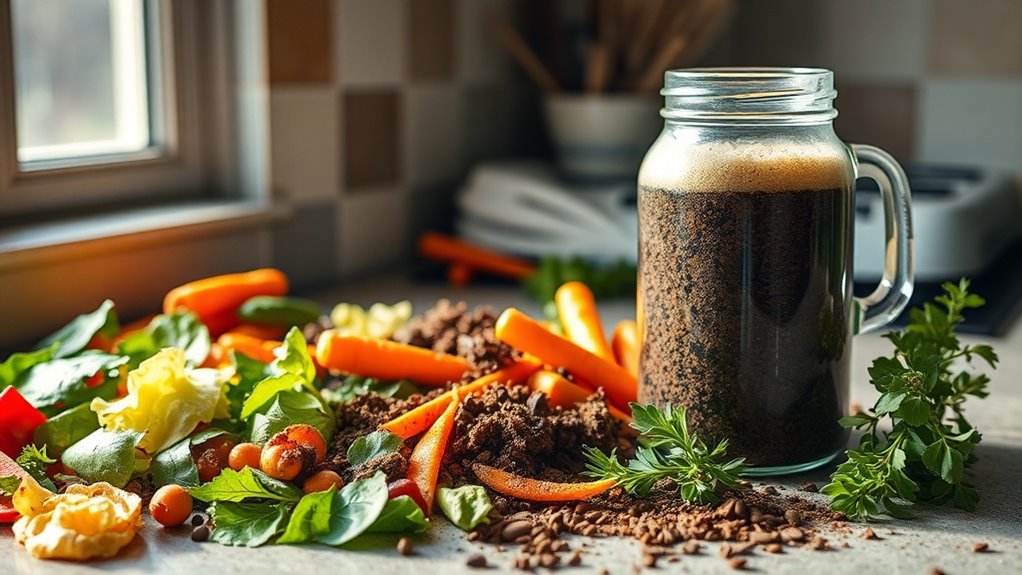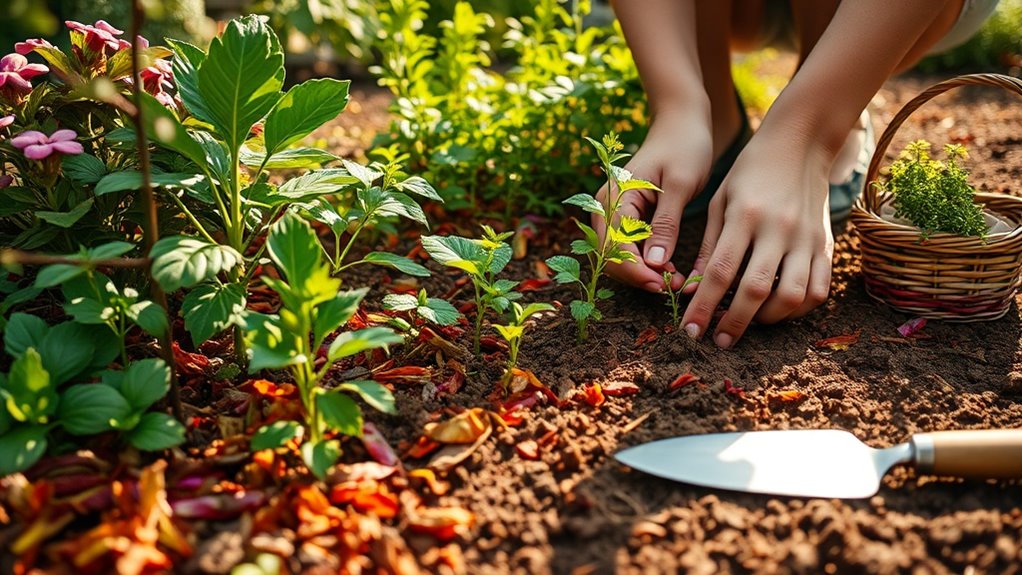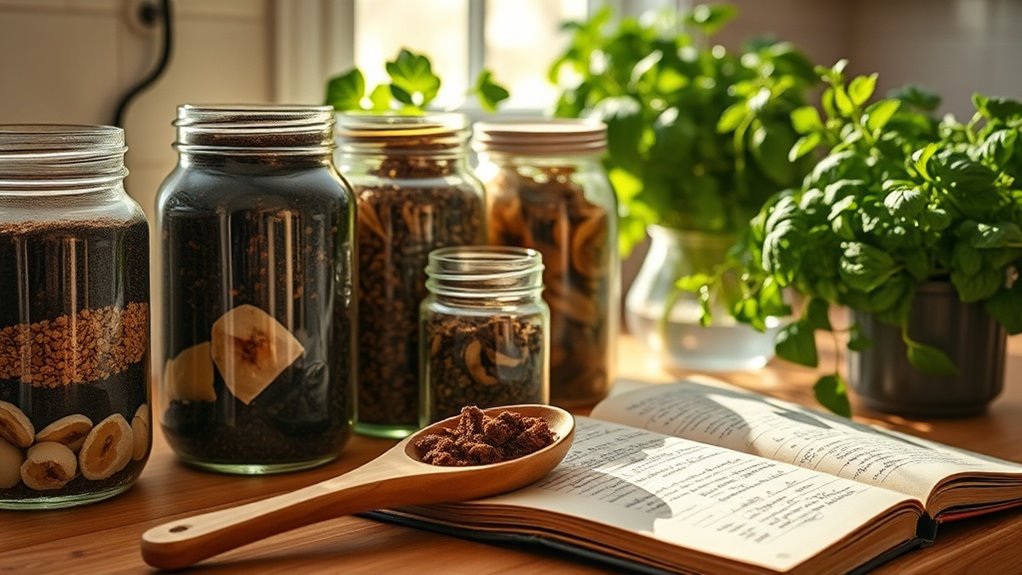I Turned My Kitchen Waste Into a Garden Superfood
You might think composting is complicated, but it’s simpler than you think. Turning kitchen scraps into a nutrient-rich fertilizer can significantly enhance your garden’s health. Not only does it cut down on waste, but it also promotes sustainable practices. Imagine transforming vegetable peels and fruit cores into a garden superfood. Discovering how to do this could lead to more vibrant plants and a thriving garden ecosystem. Want to learn the steps to get started?
Understanding Kitchen Waste
Kitchen waste is a common byproduct in every household, yet many people overlook its potential as a valuable resource.
You can easily turn this waste into compost from kitchen waste, enriching your garden soil. Fruits, vegetables, and coffee grounds can transform into nutrient-dense compost. Additionally, homemade fertilizer can be created from kitchen scraps to further boost soil health.
Embracing this practice not only reduces landfill waste but also supports eco-friendly gardening efforts in your community.
The Benefits of Composting
Composting offers numerous benefits that can transform your garden while contributing to a healthier environment. You’ll improve soil structure, enrich nutrients, and reduce landfill waste. It also encourages beneficial microorganisms, helps retain moisture, and can even save you money on fertilizers. Here’s a quick overview of its advantages:
| Benefit | Description | Environmental Impact |
|---|---|---|
| Nutrient Enrichment | Boosts soil fertility | Reduces chemical fertilizer use |
| Soil Structure | Enhances drainage and aeration | Promotes healthy ecosystems |
| Waste Reduction | Diverts organic waste from landfills | Lowers carbon footprint |
| Moisture Retention | Helps soil retain water | Conserves water resources |
| Cost Effectiveness | Cuts down on gardening expenses | Minimizes environmental costs |
In addition to these benefits, composting can significantly reduce landfill waste and create a more sustainable gardening practice that nurtures the earth.
How to Start Composting at Home
Starting your own compost pile at home can be an easy and rewarding way to recycle organic waste.
Begin by collecting kitchen scraps and yard debris, then create a designated compost area.
-
Mix green materials (fruits, veggies) with brown materials (dry leaves, paper)
-
Maintain moisture and aerate regularly
-
Watch your waste transform into nutrient-rich compost!
To build a compact compost bin, consider following simple guidelines that will help you create a designated space for efficient composting.
Incorporating Compost Into Your Garden
While you’re excited to see your compost pile turn into rich organic matter, incorporating it into your garden can take your plant health to the next level.
Mix compost into your soil before planting or create a topdressing around your plants. This boosts nutrients, improves soil structure, and enhances moisture retention. Additionally, utilizing fast composting techniques can accelerate the decomposition process, allowing you to enrich your garden more quickly.
Regularly adding compost keeps your garden thriving and reduces kitchen waste.
Success Stories: Thriving Gardens From Kitchen Scraps
Transforming kitchen scraps into a thriving garden not only benefits your plants but also supports sustainable living.
You can witness incredible success stories like yours with these tips:
- Regrow green onions from kitchen scraps for continuous harvest.
- Compost vegetable peels to enrich the soil naturally.
- Create a worm bin for nutrient-dense worm castings that boost plant growth.
Incorporating odor-free composting methods can ensure your garden thrives without any unpleasant smells.
Start turning waste into a bountiful garden today!

